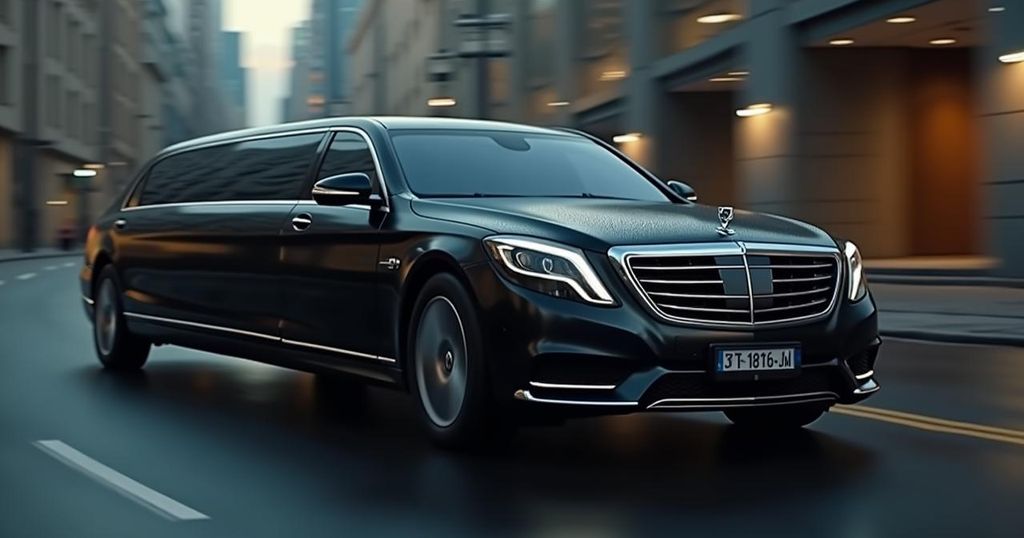Vladimir Putin’s surprise visit to Turkmenistan for a summit with Iranian President Masoud Pezeshkian sparked controversy as he arrived in a black limousine, defying local laws. The discussions centered around Iran-Russia relations amid rising Middle Eastern tensions. The backdrop of Turkmenistan’s repressive political environment further complicates the regional dynamics.
Russian President Vladimir Putin has arrived at a summit in Turkmenistan, causing controversy by traveling in a black limousine, which is against local regulations that dictate the use of white or silver vehicles. His visit to Ashgabat was marked by discussions with Iranian President Masoud Pezeshkian, primarily focused on the escalating tensions in the Middle East. Upon his arrival in his bullet-proof Aurus Senat, Putin was greeted by Turkmen President Serdar Berdymukhamedov, whose late father had instituted the ban on black cars due to superstitions concerning their luck. During the summit, Putin emphasized the importance of Moscow’s relationship with Tehran, referring to Iran as a priority for Russia and highlighting the mutual benefits of their growing ties. He remarked, “Relations with Iran are a priority for us, they are developing very successfully.” Meanwhile, President Pezeshkian noted the sincerity of the relationship, indicating that the countries share similar positions on international matters. The region is experiencing heightened unrest, particularly with Israel’s military operations targeting Hezbollah in Lebanon. The summit was convened under the auspices of a conference celebrating a local poet, although Putin’s attendance had been announced only shortly prior, reflecting the clandestine nature of Turkmen governance. Access to information and basic human rights in Turkmenistan remains severely restricted, as underscored in Human Rights Watch’s recent reports, which document persistent repression and torture within the country’s prison system. President Berdymukhamedov inherited the presidency in 2022, succeeding his father, who had a reputation for eccentricity and strict governance. His predecessor implemented various bizarre policies reflecting personal beliefs in health and fitness, including a complete smoking ban and public participations in cycling events. Despite this eccentricity, the regime continues to grapple with numerous socio-political challenges, including heightened authoritarianism and economic issues, such as food insecurity and inadequate acknowledgment of poverty.
The visit of President Putin to Turkmenistan signifies not only a diplomatic engagement but also illuminates the intricate dynamics at play in the context of global sanctions against both Russia and Iran. Following the 2022 invasion of Ukraine, the relationship between Moscow and Tehran has intensified, as both nations find common ground in their opposition to Western influence. This summit, amid local regulations and customs, reveals the complexities of international diplomacy amidst domestic protocols. Additionally, it highlights the restricted political landscape in Turkmenistan, characterized by a long-standing authoritarian regime that severely limits freedoms and maintains tight control over its citizens. The personal history of the Turkmen presidency contributes to the understanding of the country’s political climate, influencing both domestic policies and international relations.
In conclusion, President Putin’s unexpected arrival at the Iran summit in Turkmenistan, while breaching local vehicle regulations, underscores the significance of Russo-Iranian relations amidst global geopolitical tensions. The discussions held with President Pezeshkian reflect a mutual recognition of shared interests and positions, particularly in light of the worsening situation in the Middle East. The backdrop of authoritarian governance in Turkmenistan serves as a pertinent reminder of the challenges faced by individuals in the region, compounded by stringent control over freedoms and human rights.
Original Source: www.telegraph.co.uk






